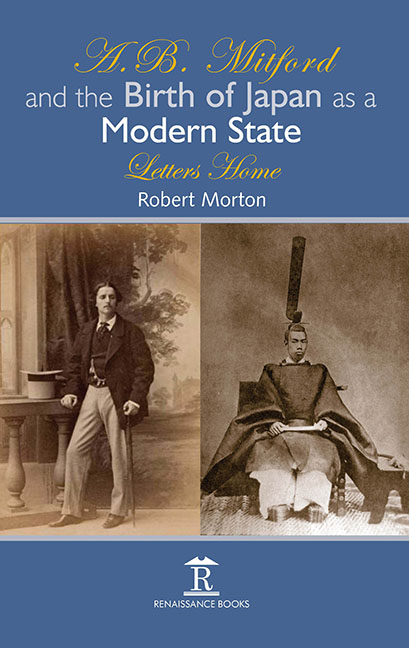Book contents
- Frontmatter
- Contents
- Foreword
- Preface
- List of Plates
- 1 Yokohama: October – December 1866
- 2 Edo: October 1866 – May 1867
- 3 The Shogun: January – April 1867
- 4 An Adventurous Journey: July – August 1867
- 5 The Birth of the New Japan: October 1867 – March 1868
- 6 Kyoto: February – March 1868
- 7 Osaka: March – July 1868
- 8 Tokyo: August 1868 – January 1870
- 9 After Japan: 1870 – 1906
- 10 The Return: February – March 1906
- 11 The Legacy: 1906 –
- Notes
- Bibliography
- Acknowledgements
- Index
8 - Tokyo: August 1868 – January 1870
Published online by Cambridge University Press: 30 April 2022
- Frontmatter
- Contents
- Foreword
- Preface
- List of Plates
- 1 Yokohama: October – December 1866
- 2 Edo: October 1866 – May 1867
- 3 The Shogun: January – April 1867
- 4 An Adventurous Journey: July – August 1867
- 5 The Birth of the New Japan: October 1867 – March 1868
- 6 Kyoto: February – March 1868
- 7 Osaka: March – July 1868
- 8 Tokyo: August 1868 – January 1870
- 9 After Japan: 1870 – 1906
- 10 The Return: February – March 1906
- 11 The Legacy: 1906 –
- Notes
- Bibliography
- Acknowledgements
- Index
Summary
WHEN MITFORD WENT back to the house at Monryōin in October, he found it in a state of ruin, as he must have expected. This no longer bothered him because he knew it could be quickly fixed up. But Edo itself was also in a poor state. When he had last been there, ten months earlier, it had been a bustling and vibrant place. Its prosperity had been based on its being the Shogun's capital and all the activity created by having the daimyō residences there. With the defeat of the Shogun and the dispersal of his apparatus of government, it had lost around a third of its population. Mitford told his father it was ‘a city of the dead’, with its great buildings rotting: ‘Grass grows in the streets and the palaces of the Daimios are wildernesses dotted with rotten tumbledown buildings.’ The civil war and heavy summer rains had taken their toll and even the castle was a wreck. To top it off, the bad weather had devastated the harvest, meaning there was widespread hunger there – Kido Takayoshi thought that the eyes of the people had ‘the look of famine victims’. Everything was damp, Mitford writing of the ‘mire and slosh not to be described’. Anything metal was covered in rust; ‘boots and shoes bore a rich crop of unwholesome fungus’; ‘our crazy wood-and-paper built cottages … smelt of mould’ and the ‘very people one met in the streets looked mildewed and sodden’.
Mitford was treated to the sight of the Shogun's retainers (hatamoto) in their fallen pride. They had been left behind when Yoshinobu fled the city and now had no income. In Tales of Old Japan, Mitford cast them as villains, writing that they had ‘waxed fat and held high revel, and little cared they who groaned or who starved’. They had been, he told his father,
magnates before whom the baser had grovelled in the dust, not daring to speak above a whisper: men who, as they rode in the streets, neither looked to the right nor to the left, and who would not condescend to look … at … foreigners. It was beneath their dignity to notice anything.
- Type
- Chapter
- Information
- A. B. Mitford and the Birth of Japan as a Modern StateLetters Home, pp. 132 - 152Publisher: Amsterdam University PressPrint publication year: 2017



